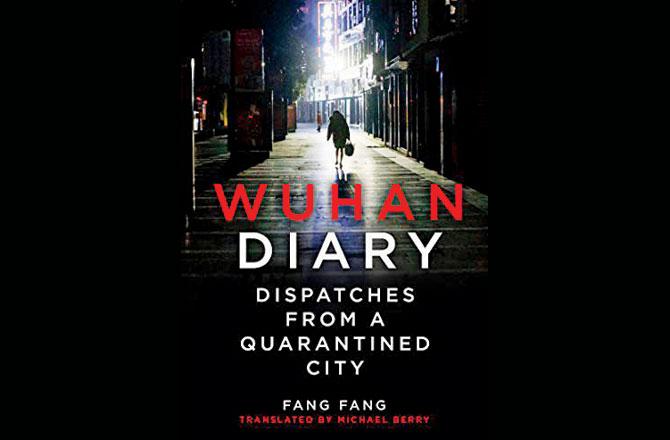A writer offers a blow-by-blow account, as fascinating as a thriller, of how the novel Coronavirus sneaked up on Chinas most ambitious city

Residents wear masks while practising dance near the Yangtze River on May 1, in Wuhan, as the government began lifting restrictions gradually. Pic/Getty Images
As we write this, the COVID-19 cases in the city of Wuhan, in China's Hubei province, have been safely oscillating between two and seven cases every day, for the last one month. The relieving figure of zero appears so close, and yet so far. But Wuhan has come a long way since it became the centre of the deadly Coronavirus outbreak, which in a matter of few weeks, brought the world to a halt. The unprecedented step of declaring a lockdown in the virus-infected city, also became a template for other countries to follow. In some places, like New Zealand, it met with roaring success—the country declared itself #Coronavirusfree this week. In others, Italy and Spain, for instance, the results have been uplifting; meanwhile some, like the US and India, continue to struggle. And so, irrespective of how much everyone wants to shun China at the moment, Wuhan's brave fight with the virus still brings hope."
Wuhan Diary: Dispatches from a Quarantined City (HarperCollins India), a newly-released book by well-known Chinese literary writer Fang Fang, is as gripping as a thriller. Only here, we all know what happened in the end; if anything, one wants to find out how the city eventually got there.
ADVERTISEMENT

Fang Fang
The book, which is a compilation of the author's diary entries and social media posts, documenting 60 days of lockdown, offers a ringside view of how Wuhan coped. It's an interesting case in point, because when the outbreak happened, it was a lone warrior, fighting a lone battle. This may have changed by the end of February, but that doesn't take away from the fact that the city was isolated from and by the world, when the virus reared its ugly head. "Wuhan is always vying to be first at everything, but now it is first in line to taste this suffering," the author shares, in one of her initial diary entries.
Her diary begins on January 25, day two of the Lunar New Year. Like many, Fang too, writes about experiencing a strange uneasiness. "For a while now, everyone in Wuhan seemed to be in a state of paralysis, frightened and not knowing what to do…," she writes. There were murmurs about a SARS-like virus causing people to drop dead, through January, but the government hadn't been forthcoming. In fact, some officials, had claimed that the disease didn't spread through contact, and was curable. Fang decided to share her journey online, because she had a feeling that the press was being censored, and that the truth was being glossed over. Her entries became a doorway for people to witness the horrors that the city was experiencing.

Senior middle school students assemble while following social distancing rules in Wuhan in China's central Hubei province on May 20, the first day that schools in the city reopened. Pic/AFP
Fang combines journalistic rigour with personal observations, to present a searing memoir of a plagued city. Wuhan, unlike Mumbai, may not have had to deal with migrant woes, but the parallels are uncanny: Acute shortage of masks and essentials; no roof for the poor; lack of hospital beds; doctors and medical staff dying by the dozen. "Many...are dragging their sick bodies all over the city in search of treatment." It's heartbreaking when Fang recounts receiving a photograph on text from a doctor friend. It was a "picture of a pile of cellphones… on the floor of a funeral home; the owners of those phones had already been reduced to ash." It's a story of every city grappling with the pandemic.
The truth is that the virus doesn't discriminate. It's possibly why everybody's story of shock, pain, vulnerability, and dread is almost the same. At the end, there is a semblance of hope, at least. Her last diary entry on March 24, day 62 of the lockdown—ironically, is made on the day India was prepping to down the shutters. The city was still two weeks away from opening up, but by then, she could do the small things—like take her 17-year-old dog to the vet. "I have already fought that beautiful battle; I have already completed my course; And I have stood by every truth I believe in," she ends.

Price: Rs 524 To buy: kindle.in
It's heartbreaking when Fang recounts receiving a photograph on text from a doctor friend. It was a "picture of a pile of cellphones… on the floor of a funeral home; the owners of those phones had already been reduced to ash."
Catch up on all the latest Mumbai news, crime news, current affairs, and a complete guide from food to things to do and events across Mumbai. Also download the new mid-day Android and iOS apps to get latest updates.
Mid-Day is now on Telegram. Click here to join our channel (@middayinfomedialtd) and stay updated with the latest news
 Subscribe today by clicking the link and stay updated with the latest news!" Click here!
Subscribe today by clicking the link and stay updated with the latest news!" Click here!







